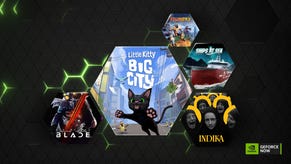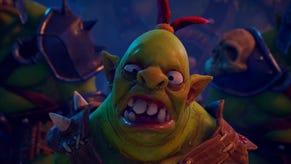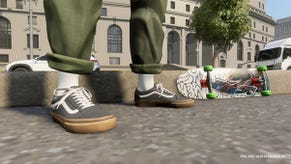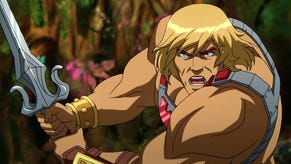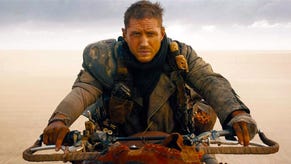Feature: What the hell happened to Tony Hawk?
Once upon a time, the Tony Hawk series was one of the biggest in videogames. If you listen to Metacritic, the Tony Hawk Pro Skater titles are some of the best games of all time, and every one of them was a runaway bestseller. At the beginning of the last decade – just after the release of Pro Skater 2 – the franchise was generating $250 million a year, according to figures from analyst Wedbush Morgan.
Last year, the year of Tony Hawk: Ride, franchise sales were closer to $100m. This year, Activision's trying – failing – to flog $120 fake skateboards to children, whilst Activision publicly defends its abysmal sales.
What on earth happened, and why, when Activision is culling the likes of Bizarre Creations, won't Activision finally shoot the Hawk?
If you're wondering just how popular the Tony Hawk series once was, you only need to look at its ubiquity as a gaming cultural touchstone – everyone who so much as looked at a videogame in the late Nineties and early Noughties had played Pro Skater.
We've got some numbers too, if you're into that. It's done well in the UK, but sales in the US were phenomenal.
The original Tony Hawk's Pro Skater, released in 1999, sold about 3 million in the US according to Activision's boasts at the time. Pro Skater 2 did even better, shipping 1 million in less than a month in the States – and that really was a lot back in 2000. Wedbush Morgan puts the series's total sales at around $1.7 billion globally over the last 11 years.
Dropping in
Things dropped off a little in the following years, with Pro Skaters 3 and 4, Tony Hawk Underground and its sequel pushing everyone towards brand fatigue. Since then it has all, rather appropriately, gone downhill. Neversoft, the series's now very rich and famous inventor, attempted reinvention with Project 8 before finally relinquishing Hawk in 2007. Its last title was Tony Hawk's Proving Ground.
Clearly already worried about the IP's future, Activision set new developer Robomodo to work on the infamous skateboard peripheral for Tony Hawk: Ride. Ride completely missed the top 40 in the UK – to put that into perspective, Pro Skater 2 went straight in at number 1 and stayed in the top 10 for 24 weeks.
In the US, it sold just under 140,000 copies in its first week. Put that next to 1 million shipped in three weeks a decade ago – when the game market was much, much smaller – and it really doesn't look good.
Shred, the latest Hawk game, did even worse. It sold a mind-bendingly abysmal 3,000 copies in its first week in the States, the brand's homeland.
If Ride was the critical and creative trough of Tony Hawk's videogame career, this is the commercial one. Activision rewarded Robomodo's work on the series by firing everyone back in October. Must do better.
Big air?
The series's future, then, is in doubt. Given that this is a publisher that's got no problem with culling failing franchises – or, indeed, cancelling games and closing developers that it doesn't see delivering immediate financial benefit – you might justifiably wonder why it bothers sticking with the Tony Hawk series in such times of adversity.
There's a fairly boring answer to that: Activision is tied into the series, and there are still about four years left on the contract, which expires in 2015; March 31st 2015, to be precise. The deal was signed in 2002, near the peak of Hawk's gaming popularity. The publisher has to pay Tony either way, whether it releases any more games or not. But is that the only reason Activision is persisting?
Wedbush Morgan super-analyst Michael Pachter reckons the publisher might still be eyeing another multi-million-selling hit.
“The brand has performed well in the past, and although the genre isn’t growing, it’s large enough to continue to chase,” he says. “I think that they see the potential to sell 3–4 million units a year if they get the formula right.”
Activision's original mistake was probably in making the Hawk series annual. There's only so much you can improve in such a short space of time; by the time Pro Skater 4 came out way back in 2002, fans were already getting tired of the same thing. It's been faltering since then, making ill-advised forays into novelty without doing anything creatively brave, declining consistently in quality. Meanwhile, the Skate series showed us that there was still something new to be done with skating games, though it wasn't rewarded with astronomical sales.
Wii Fit and skating don't mix
With Ride and Shred, of course, the publisher compounded the problem by leaping on the back of a dying peripheral trend.
“I think that their mistake was in trying to replicate Wii Fit with their own accessory, and then trying to sell us another skateboard,” says Pachter. “People don’t love skate games enough to spend $120, or even $100, but if they made a great $60 game, they would probably have been more successful.
"I think that the peripheral craze has run its course. Sales of band kits, turntables, balance boards and skateboards are all on the decline, while sales of Move and Kinect are replacing them (for a time). People have only so much room for these things, and certainly don’t want to replace them every year.”
If Activision somehow finds a new developer that can tap into what made Tony Hawk's Pro Skater 2 one of the best-rated games ever, things will almost certainly pick up. But better games don't always sell more, as Skate proves. Brand recognition is also fading; despite Activision's claims to the contrary, Tony Hawk just isn't as big now as he was in the late Nineties. Existing fans recognise the name, but that demographic seems to already be burnt out. Is he really still a household name?
There's also the fact that skating itself, though enduringly popular, just isn't the ubiquitous cultural phenomenon that it was during the mid to late Nineties, back when Bart Simpson was doing it and it was a proper worldwide craze.
There's still a huge market of teenage skaters out there who weren't part of the original Tony Hawk phenomenon, but its casual appeal is more limited, despite the vastly expanded games market. There could still be another million-seller or few in the brand name yet if Activision finds the right developer to take over the series, but in terms of real, world-changing sales success, the inevitable conclusion is that the Tony Hawk series has had its day.



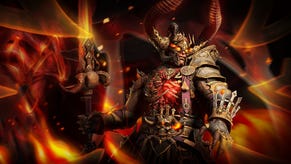
_XeCLKxB.png?width=291&height=164&fit=crop&quality=80&format=jpg&auto=webp)
